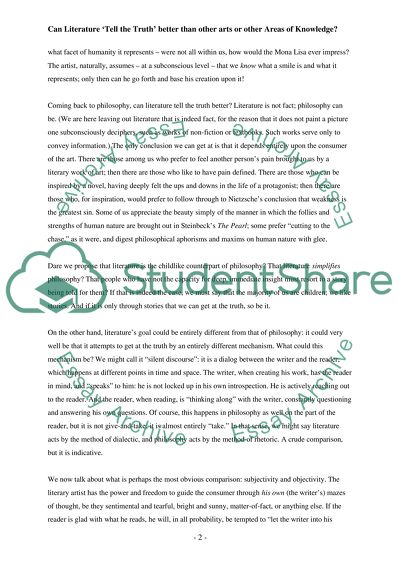Can Literature Tell the Truth better than other arts or other Areas of Essay. Retrieved from https://studentshare.org/literature/1512637-can-literature-tell-the-truth-better-than-other-arts-or-other-areas-of-knowledge
Can Literature Tell the Truth Better Than Other Arts or Other Areas of Essay. https://studentshare.org/literature/1512637-can-literature-tell-the-truth-better-than-other-arts-or-other-areas-of-knowledge.


